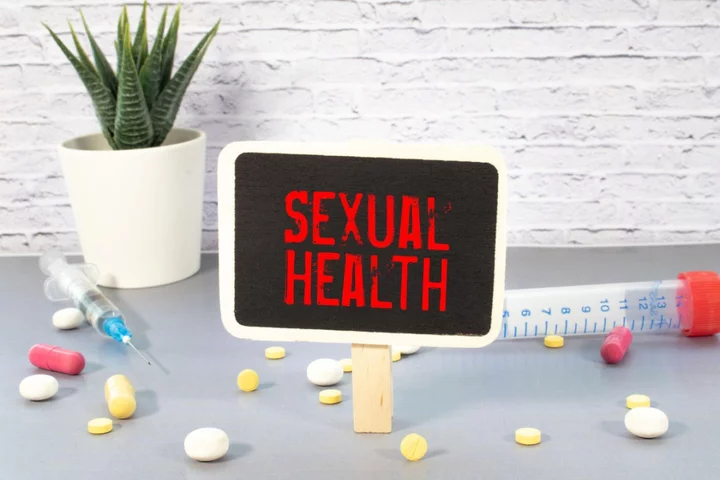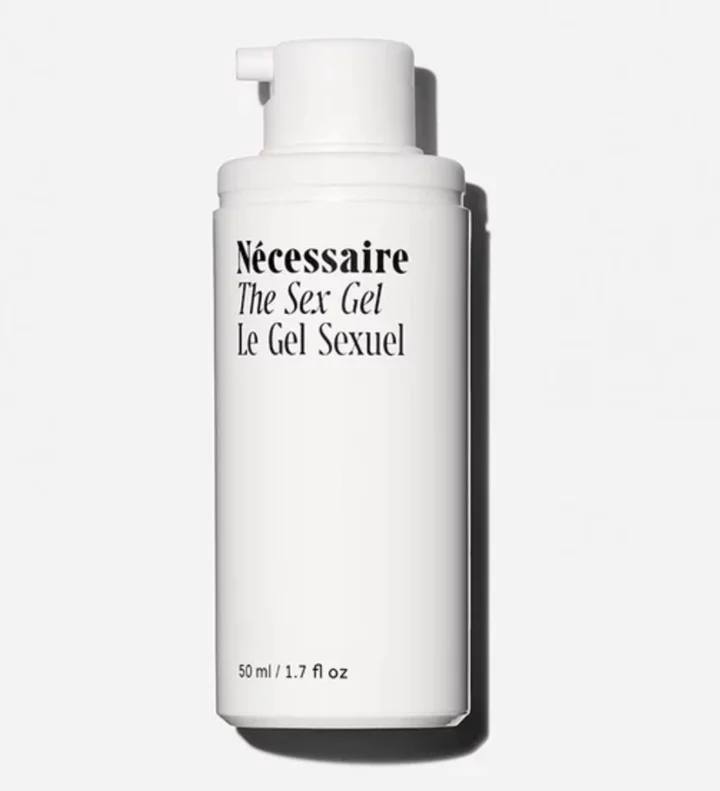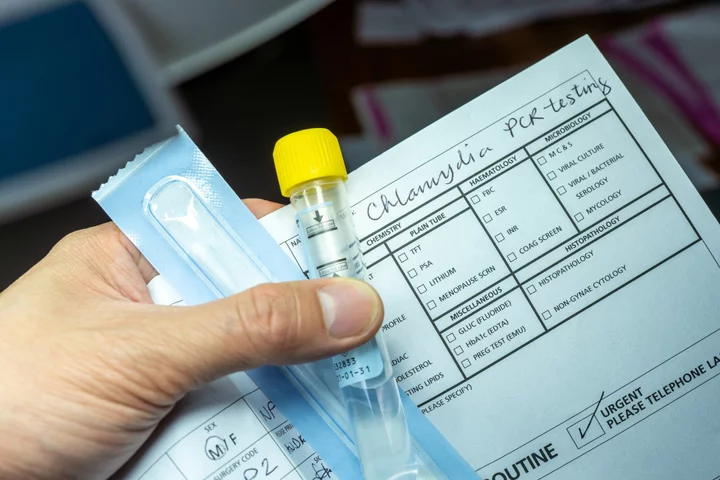
What happens at a sexual health check-up?
With record levels of gonorrhoea and syphilis cases reported by the UK Health Security Agency, it’s important to take sexual health seriously – and not just for young people. In fact, the number of common sexually transmitted infections (STIs) among over-65s increased by 20% from 2017 to 2019, according to the Local Government Association. This is why if you are sexually active, regular testing is necessary whatever your age – even if you don’t have any symptoms. “Sexual health check-ups are important because STIs can be silent but can also have significant health implications,” says Dr Priyanka Patel, consultant ambulatory gynaecologist at London Gynaecology. “STIs such as chlamydia can affect female fertility, and STIs such as HIV weaken the immune system.” To mark Sexual Health Week (September 11-17), Dr Patel talks through some key points about STI screening… How often should you have an STI check? “You need to have an STI check whenever you have a new partner, especially if you’re not using condoms, or think you were exposed to an STI,” says Patel. “Everyone should have an STI screen, including an HIV test, every year if having sex without condoms with new or casual partners.” Testing is also advised for anyone who develops possible symptoms. These may include unusual discharge from the vagina, penis or anus; pain when peeing; blisters, sores, lumps or skin growths on the genitals or anus; itching or a rash. What will you be asked at a check-up? You can find your nearest sexual health clinic via the NHS to book an appointment. Many sexual health services now offer free self-sampling kits to order online for people who don’t have any symptoms and want to do a check-up at home. “Men may have to hold their urine before testing, but women do not need to do anything in particular to prepare,” Patel says. “You will be asked about your sexual history, partners, contraceptive use and general health. You will be asked for details about your recent sexual partners and types of sex you have.” These questions may feel personal or intrusive but are important to ensure the correct tests are done. Remember, taking care of your sexual health is about being safe and empowered and healthcare professionals are there to help. What tests are done? “The testing will depend on the answers you give about the types of sex you have,” says Patel. “Vaginal, throat and anal swabs may be done – these will be used to test for chlamydia and gonorrhoea.” To do this, the clinician rubs a cotton bud inside the area for a few seconds. A blood sample will be taken to test for syphilis and HIV. Patel continues: “If you have symptoms, then the clinician will usually carry out a speculum examination to look at the health of the vagina and cervix.” How do you get STI test results? The way your results are delivered varies between clinics, and they will advise when you should expect to hear back. “Most will send results via a text message or give you a number to call for results,” says Patel, while some have a ‘no news is good news’ policy, meaning if you don’t hear anything then you’ve got the all-clear. For home testing kits, you’ll get a notification to say your samples were received and results are usually sent via text message. “If you test positive for an STI, they will arrange for treatment and offer support,” Patel explains – which goes for both clinic and self-sampling. She adds: “It’s important to notify partners of any positive results and the sexual health clinic can also assist in anonymous partner notification.” Read More Charity boss speaks out over ‘traumatic’ encounter with royal aide Ukraine war’s heaviest fight rages in east - follow live 9 arthritis myths we all need to stop believing Prince Harry spotted at Windsor Castle on anniversary of Queen’s death How the weather can change the way you dream
2023-09-11 15:24

The 17 Best Natural Lubes For An Organic-Feeling Glide
Lube is a great addition to sex or masturbation, but there are so many options out there that it can be overwhelming to find one that’s right for you. Silicone? Oil-based? Water-based? Flavored? Warming? Now the choices are getting even more complicated with many people adding "natural" to the list of things they want from their lube.
2023-09-09 06:23

LELO just dropped its first triple-stimulation sex toy
NEW SEX TOY LAUNCH: LELO's newest addition to the ENIGMA collection, the ENIGMA Wave, is
2023-09-07 22:17

The 15 Best Cheap Vibrators Under $50 (With Orgasms That Feel Full Price!)
When some of the best vibrators cost $100, $200, or more, it's hard not to think of them as a luxury. But not being able to shell out that kind of cash on a sex toy shouldn't be a barrier to self-pleasure. If you want an orgasm without breaking the bank, cheap vibrators are out there.
2023-09-07 06:45

Where was the pleasure when Anthony lost his 'ass virginity' in 'And Just Like That'?
Sex in real life is messy. You end up with lube or bodily fluids on
2023-09-06 23:56

'Corsage' star admits child porn charges in Austria court
A star of the award-winning film "Corsage" about the free-spirited Austrian empress Sisi pleaded guilty Tuesday to child pornography charges...
2023-09-05 16:53

Top 5 NSFW sites to learn what porn didn't teach you
In the United States, sex education is pretty poor; some states don't require it at
2023-09-01 20:19

Everything you need to know about perimenopause
Claire Richards has opened up about her experience perimenopause, saying that she feels “lucky” to be experiencing it at this stage in her life. The Steps singer, 46, said on Good Morning Britain: “I feel quite lucky to be going through it [perimenopause] in a period where others have spoken out about it already. There’s a lot more information for me to find. “And I think half the population is going to go through at some point and I was surprised at how little we know as women about perimenopause, menopause, [or] anything that happens to us. Here’s everything you need to know about perimenopause... What is perimenopause? Perimenopause is the transitional period before menopause, and can occur any time between your mid-30s to mid-50s. According to The Menopause Charity, menopause is when your ovaries stop producing eggs and your hormone levels fall. Perimenopause is the gradual process before this when your ovaries start to slow down, and The Menopause Charity says it can last for a few months or several years. Menopause begins when you have not had a period for 12 months, the NHS states. What are the symptoms? The first symptoms of perimenopause are usually (but not always) changes in the normal pattern of your periods, the NHS says. Otherwise, the symptoms are very similar to what women experience once they have reached the menopause. Everyone experiences perimenopause differently, but according to the NHS, mental health symptoms can include mood changes, anxiety, low self-esteem and brain fog. Common physical symptoms can include hot flushes, restlessness, heart palpitations, migraines, muscle aches and joint pains, weight gain, dry and itchy skin, reduced sex drive, vaginal pain and dryness, and consistent urinary tract infections (UTIs). What helps ease the symptoms? Lifestyle adjustments can help ease perimenopause and menopause symptoms. The NHS advises plenty of rest, a healthy diet, regular exercise and doing relaxing things, as well as steering clear of alcohol and cigarettes. Vaginal moisturisers or lubricants can help ease vaginal dryness. Speak to your GP if you are concerned about your symptoms. Hormone replacement therapy (HRT) can be prescribed for people going through both perimenopause and menopause, replacing oestrogen as hormone levels start to drop. Talking therapy (CBT) is another option and could help with symptoms including low mood and anxiety. Read More Woman says she started to wear ‘terrible wigs’ after her job banned her pink hair Joe Wicks defends decision to pull five-year-old daughter out of school TikToker sparks backlash for complaining about popular European vacation spots: ‘Dying to go home’ Can a vegan diet help with hot flashes in menopausal women? Alzheimer’s: How and when to talk to someone about their memory loss What are gynaecological cancers and how can you prevent them?
2023-09-01 16:49

Everything you need to know about oral chlamydia
If you're sexually active, chances are you've probably worried about STIs at some point. Google
2023-08-31 23:59

Here’s How Anxiety Affects Your Ability To Orgasm
If you’re someone who deals with stress and anxiety, the unwanted mental and physical effects can creep up during the most inopportune times. Perhaps you’re just hanging out, catching up on the latest episode of your favorite TV show and suddenly you begin to worry about everything in your life. Maybe you’re worrying about nothing in particular, but feel panicky nonetheless. Symptoms of anxiety include ruminating in your own thoughts, focusing on past regrets, a racing heart, sweaty palms, and a general feeling of impending doom. It’s a sneaky not-so-little feeling that can happen at any moment. And one of the worst moments it can strike is when you’re having sex and trying to orgasm.
2023-08-31 05:52

French minister's topless remark sparks outrage
French journalist groups have condemned "sexist" remarks directed at women reporters by Eric Dupond-Moretti, the...
2023-08-30 21:17

How women squirt on camera, according to porn stars
In porn, squirting (or female ejaculation) is often so theatrical that it’s a centerpiece of
2023-08-30 18:29
